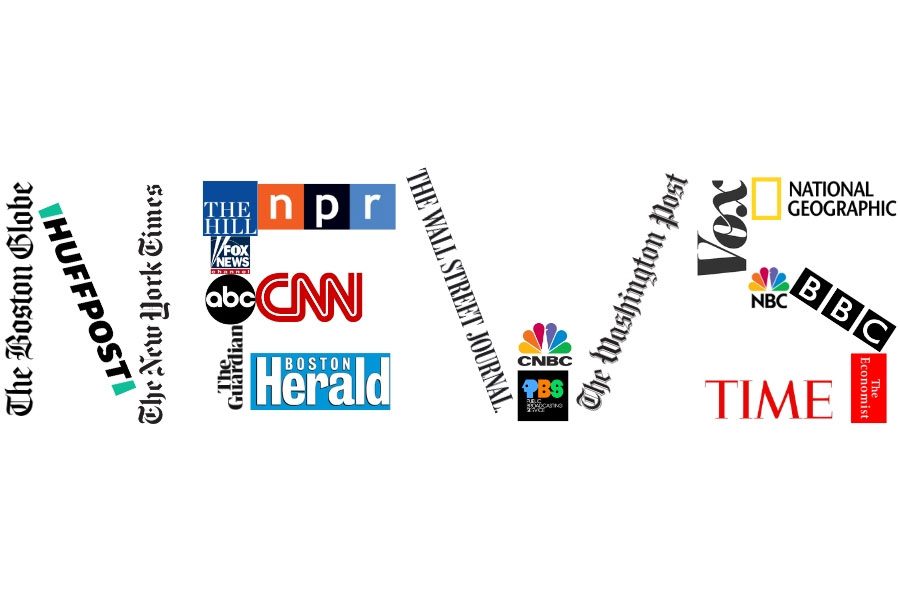Halt the attacks on news outlets
A variety of different news sources are involved in providing the many angles that create the modern-day definition of news. Considering the volume of news outlets out there, it is no surprise that some of them are not as trustworthy as others. Regardless of reputability, there need to be sancitions around free press, a pillar of American democracy, that protects it from the dangerous disparage by the consumers.
November 14, 2018
All of us student journalists at the Cavalier Chronicle would like to take a moment to offer our sincerest condolences regarding the death of Jamal Khashoggi. We, as a community, were deeply saddened to hear of his death and the blatant disregard for free press and free speech that it unearthed. It’s time we, as a global society, realize that threats to free press, a guaranteed First Amendment right, transcend partisan borders.
Freedom of press is a key piece of American identity, defined by the founding fathers almost two and a half centuries ago, with the intent to “secure the Blessings of Liberty to ourselves and our Posterity.” Yet, as news outlets are beginning to crop up left and right, there have been an increasing number of politicians and citizens alike threatening this sanction.
Understandably, no one is pleased with the circulation of false information or fake news, but that’s the vulnerability that comes with free press. Granted, newspapers can constitutionally publish anything without interference or indictment by the government.
However, there are reasonable constraints on free press. For example, according to Oyez, a Supreme Court case resource center, the case New York Times Co. versus Sullivan defined what could count as defamation against a public figure without infringing on free press, thus creating a constraint. “To sustain a claim of defamation or libel, the First Amendment requires that the plaintiff show that the defendant knew that a statement was false or was reckless in deciding to publish the information without investigating whether it was accurate,” said Oyez.
That said, legislation was recently proposed in order to deal with the outbreak of false information. However, that potential bill was dismissed because it was deemed limiting to the free press. The fact that the bill was tabled exemplifies how much Americans clearly care about their right to free press and the availability of genuine, honest news in all forms. What our country doesn’t seem to understand is a simple concept we students are taught from a young age: the media doesn’t always tell the “whole truth and nothing but the truth.” By having such an open approach to free press, we do risk being exposed to fake news. It is our job as consumers to suss out the truthful, unbiased sources.
In light of such responsibility, it is reprehensible that anyone should condemn a news source in way that could invoke violence. It is perfectly valid to disagree with the leanings of a specific news outlet; there are plenty of others to read that align with the opposing opinion. However, the outright disparaging of a news source rebuts the preservation of free press.
Although ‘hate speech’ is covered under the First Amendment, if it incites violence, it is no longer considered a liberty. This key precedent was established in 1968 by the Supreme Court case Brandenburg vs Ohio. Despite the ruling being very controversial decision, the court upheld the right of the state to convict KKK leader Clarence Brandenburg for his speech which advocated for violence. By doing so, the court condemned hate speech which insights bloodshed. In regards to the sanctions of free press, despite of the authenticity of a source, bringing violence and hate to a news organization’s door step is inherently wrong and not protected by the Constitution.
For this reason, please, public figures, we, as the next generation of journalists, urge you to watch what you say about news and media outlets. Know that words have power, and that such power should not be used to encourage attacks against one of the pillars of American democracy.













![Students in Archaeology use tools in a mock excavation. As a class that focuses on hands-on learning, students are able to gain crucial life skills. “[The class] is more hands-on than I thought, and I'm learning way more with physical activities than I do in the classroom,” said student Tess Brown ‘25.](https://cavchronline.com/wp-content/uploads/2024/11/IMG_8390-e1733078359165-278x300.jpg)
